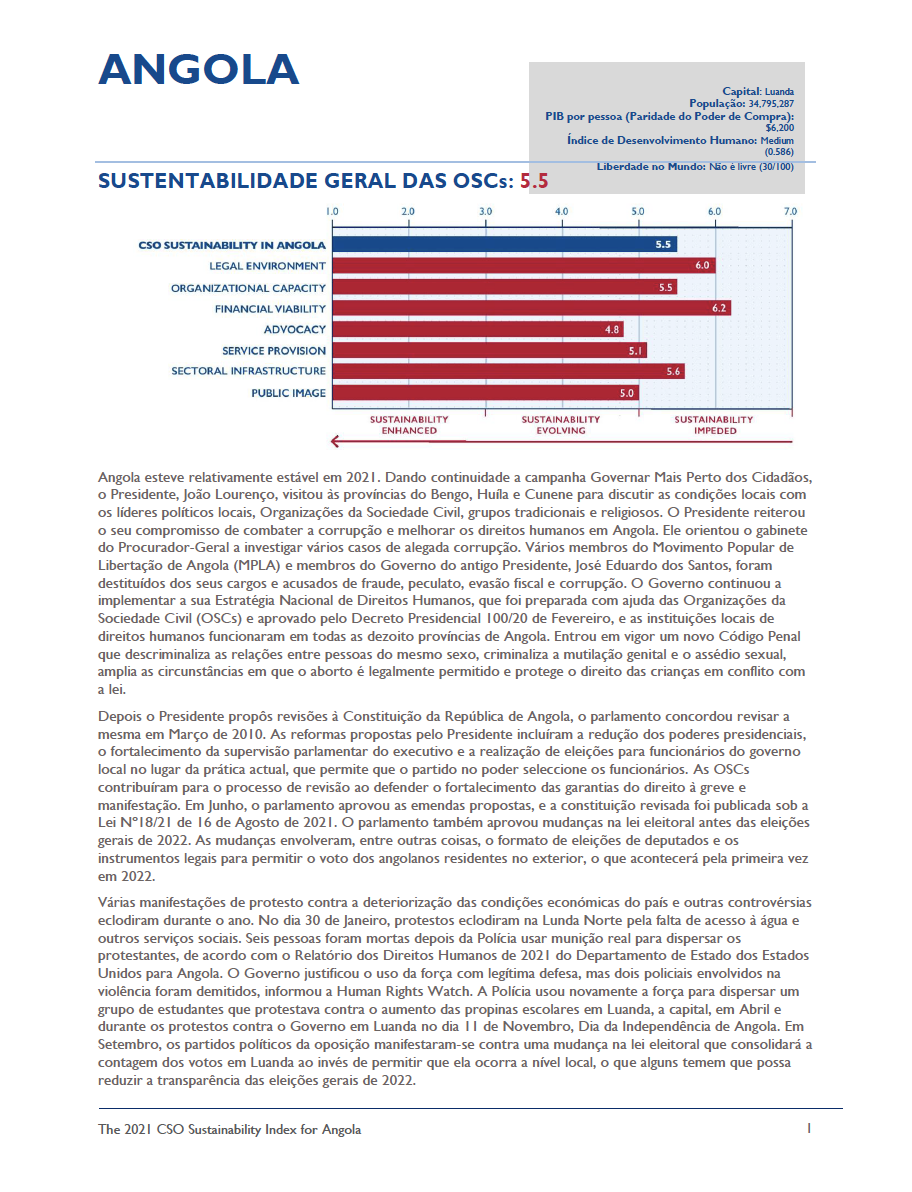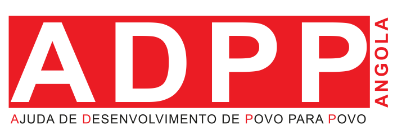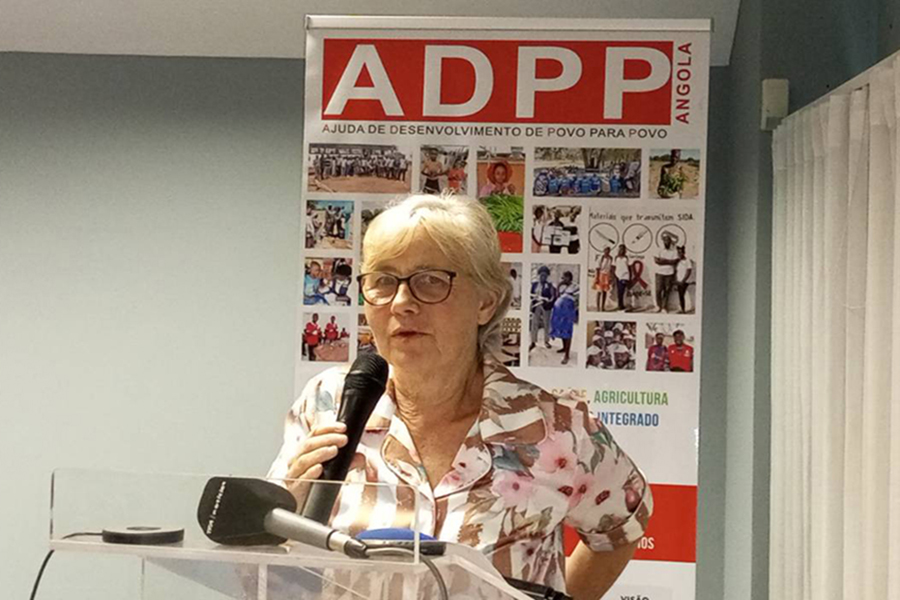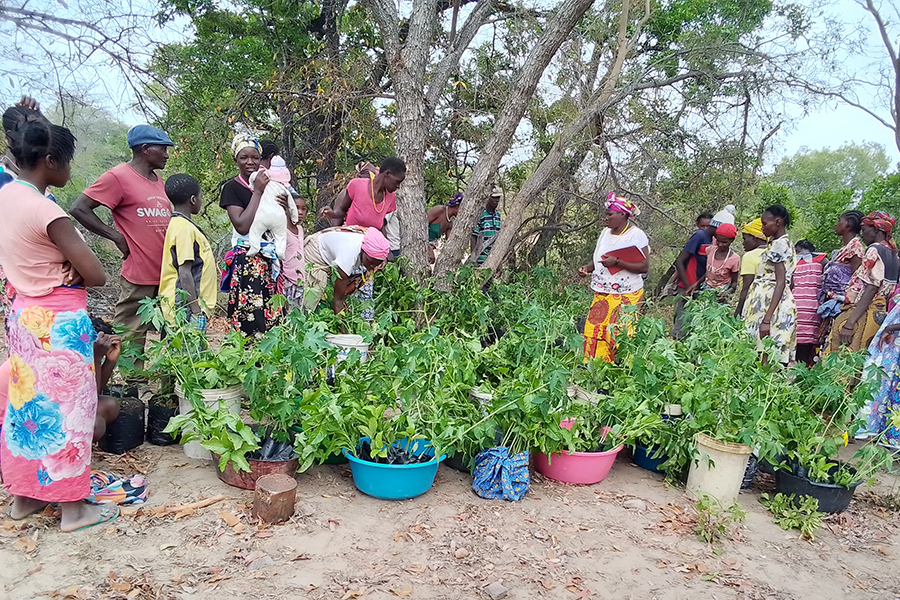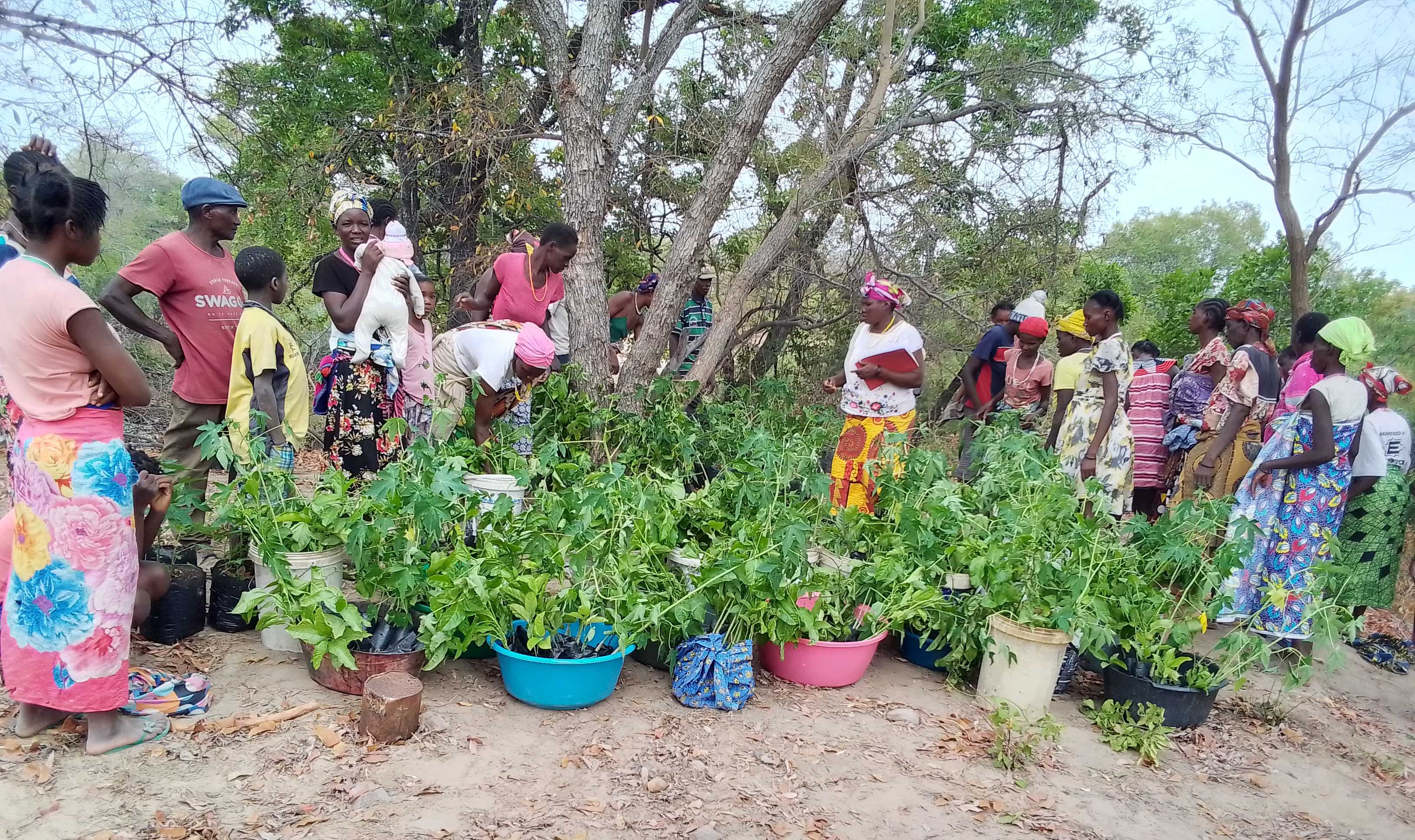As part of the celebrations marking 50 years of National Independence, Rikke Viholm, Chair of the ADPP Angola Board of Director, accepted on behalf of ADPP Angola the Peace and Development medal of honour, awarded by His Excellency João Manuel Gonçalves Lourenço, President of the Republic.
The honour acknowledges ADPP’s contribution to Angola’s development since 1986 through projects in education, health, agriculture, environment, and community development. It also marks an important milestone in the organization’s journey, as ADPP will celebrate 40 years of work throughout the country in 2026.
We dedicate this recognition to everyone who has been part of our story: team members, collaborators, participants, and partners who walk this path with us.
We celebrate our past with pride and look to the future with determination, confident that the next 50 years will bring new opportunities to continue contributing to Angola’s development and peace.

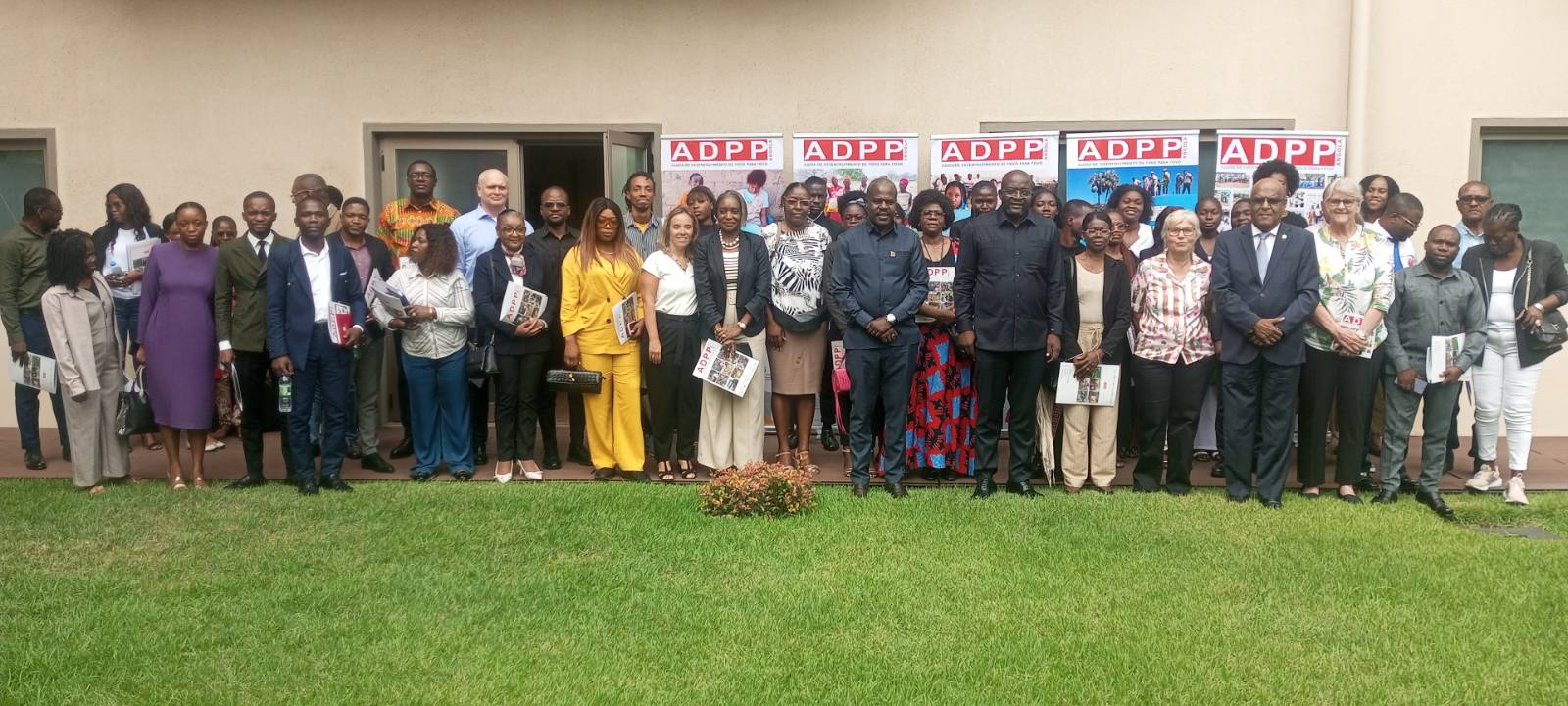
ADPP Angola officially launched its 2024 Annual Report in Luanda, bringing together institutional partners, government representatives, civil society organizations, and members of the ADPP team from various provinces.
The report presents the main results achieved throughout the year, highlighting the work carried out in the areas of education, health, sustainable agriculture, youth empowerment, and climate action across more than 80 municipalities in the country. More than just numbers, the document gives visibility to the people and communities who are building solutions for a better future every day.
“This report is a testament to the collective impact of thousands of people across the country. It is also a call for reflection and action, as there is still much to be done,” said Rikke Viholm, Chair of ADPP’s Board of Directors, during the opening session.
The year 2025 marks a special moment in ADPP’s journey: the 30th anniversary of ADPP’s Teacher Training Schools, developed in partnership with the Ministry of Education. These schools, present in several provinces, have trained thousands of teachers over three decades, fostering strong ties to their communities and a commitment to bringing quality education to rural areas.
“Training the teachers of the future is an investment in the future of the country,” emphasized a representative from the Provincial Directorate of Education attending the event.
The ceremony was also an opportunity to reaffirm the organization’s commitment to Angola’s development. In 2026, ADPP will celebrate 40 years of presence and action in the country — four decades of continuous work with communities, promoting inclusion, participation, and sustainability.
This journey unfolds at a symbolic moment, as the country approaches 50 years of independence — a milestone that reinforces the importance of cooperation, active citizenship, and the collective building of the future.
The 2024 Annual Report is now available online.
You can read it here: www.adpp-angola.org/pt/mais/publicacoes#flipbook-flip16/1
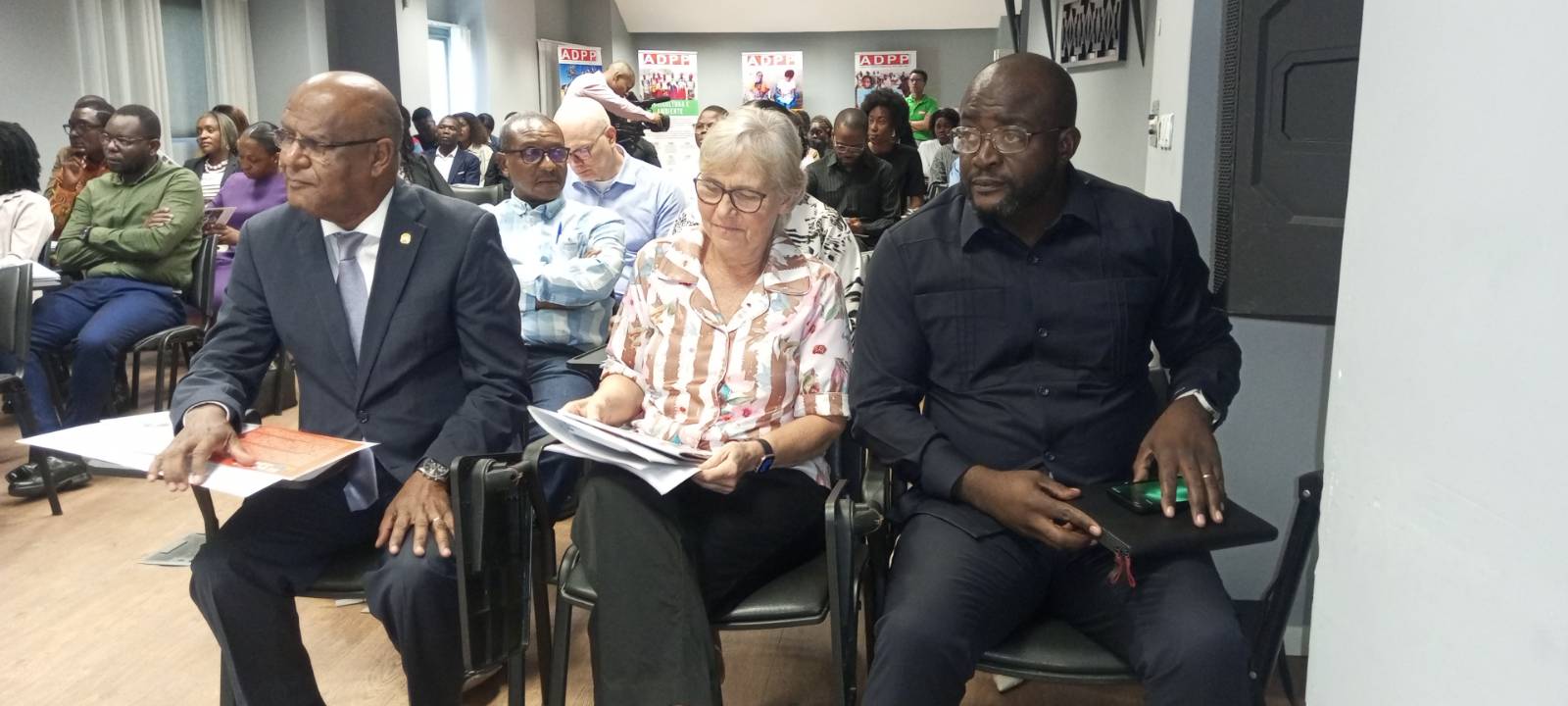
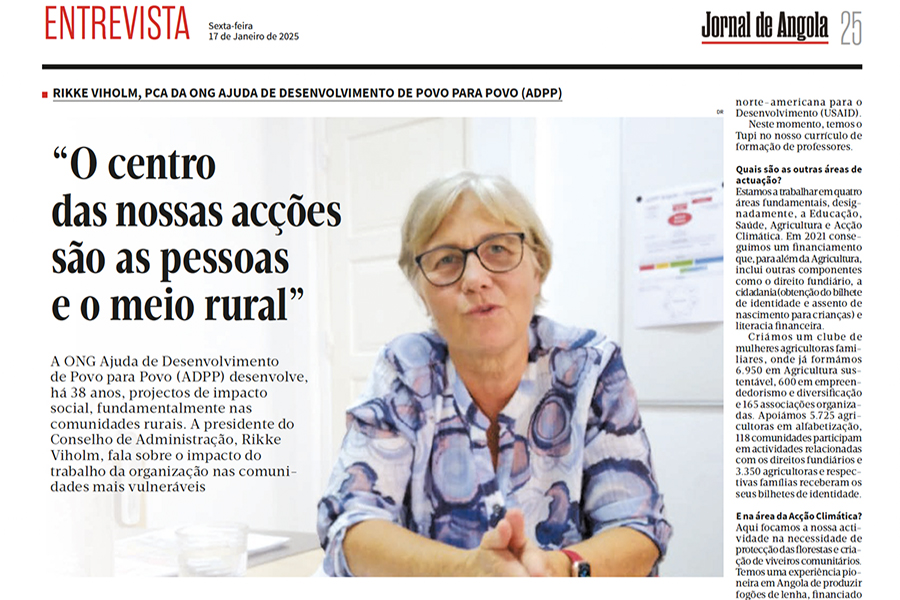
In an exclusive interview with the national newspaper, the Jornal de Angola, the Chairperson of ADPP Angola, Rikke Viholm, highlighted the institution’s main projects and challenges. For over three decades, ADPP Angola has been active in promoting sustainable development and improving the quality of life for Angolan communities.
ADPP Angola has primarily focused on contributing to development across the country and improving living conditions in underserved communities. "Our work has always been centered on empowering people, especially in the areas of health, education, agriculture, and climate action, as well as other aspects like land rights, citizenship, and financial literacy," said Rikke Viholm.
The Chairperson also addressed ADPP Angola's role in combating poverty and social inequality. "Our mission is to provide opportunities for vulnerable communities, with a focus on empowering women and youth, who are fundamental pillars of sustainable development," she emphasized.
Rikke Viholm highlighted the importance of empowering individuals through education, which is a crucial factor for the progress of any society. ADPP has also invested in community health programs, including disease prevention and access to basic healthcare, especially in rural areas. Furthermore, she discussed agricultural projects aimed at increasing production and food security while teaching sustainable techniques to local small-scale farmers.
Lastly, the Chairperson stressed that ADPP works collaboratively with the government and other non-governmental organizations to ensure the effectiveness and long-term impact of its projects. She concluded by stating that ADPP’s focus remains on the well-being of communities and building a better future for all Angolans.
For more details, the full interview can be read in Jornal de Angola via the link: https://www.jornaldeangola.ao/#/noticias/7/entrevista/627280/rikke-viholm
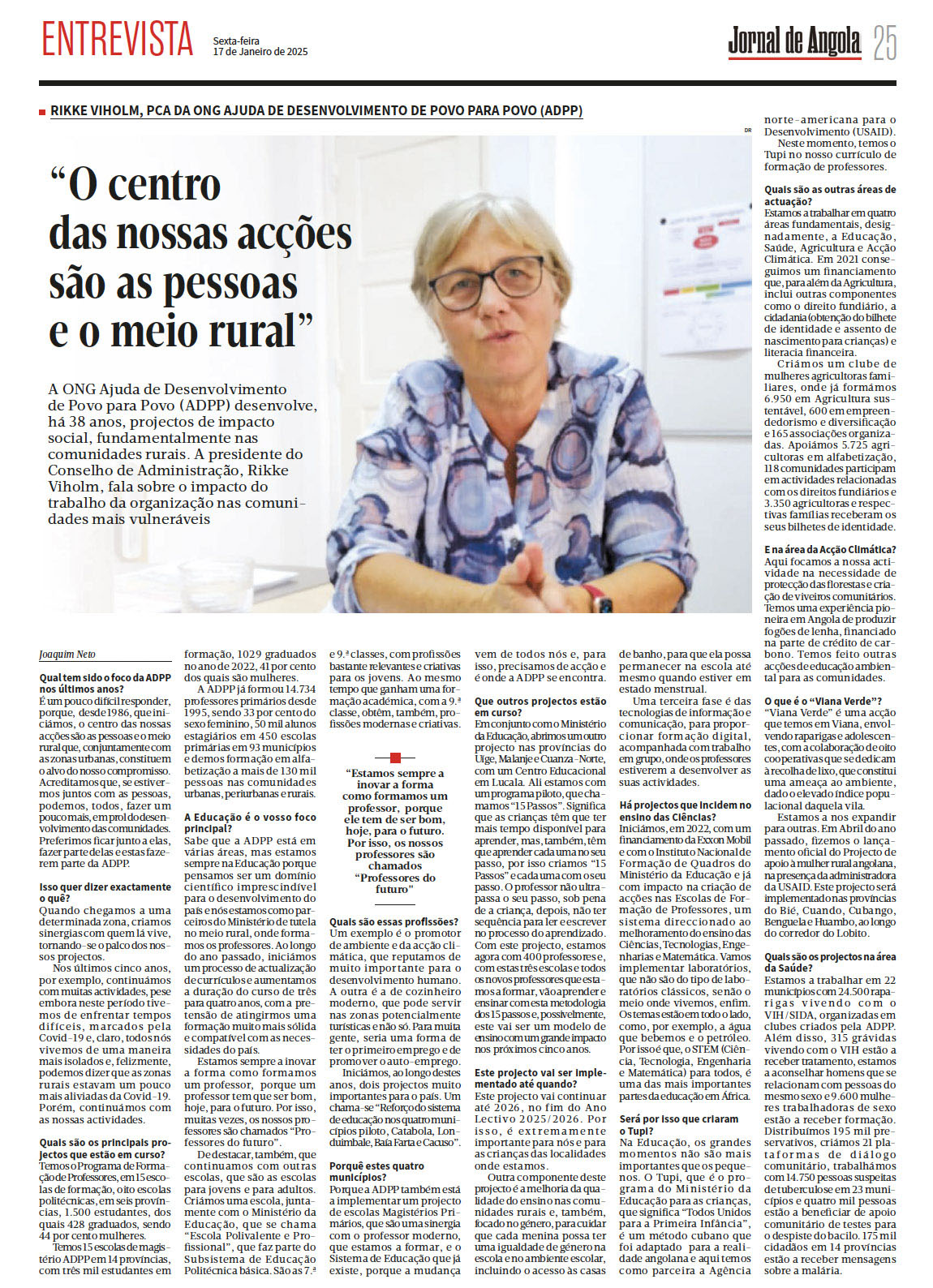
Many women farmers in Angola have limited access to essential resources such as land, water, seeds, and modern farming tools. This is a significant problem because it limits their ability to increase production and adopt more efficient agricultural practices. The USAID-supported Support to Angolan women Farmers project is purposefully working to strengthen small-scale farming across Angola, with a strong focus on empowering women by providing them with the right skills and market access to achieve economic independence.
A success story from the province of Namibe illustrates this progress. Ten women from Farmer Field Schools in Mphatelo, Bum 1, and Bum 2 collectively sold 2,500 cobs of corn and 10 crates of sweet potatoes, generating a total income of 145,000 Kz. This additional income has enabled the women to support their families, purchase necessary goods, and pay school fees for their children. The financial empowerment has allowed them to gain greater control over their financial future, reinvest in their farms, and contribute to the development of their local communities. All in all, a great success.
A key component of the Support to Angolan women Farmers project’s success lies in its continuous training for Farmers Clubs. These training sessions focus on conservation farming and are held in model fields to provide farmers with hands-on experience. The training is made to the specific needs of each region and the seasonal demands of agriculture. In the six original provinces where the project operates, these sessions have become an essential part of agricultural life. Women farmers have been able to apply their new knowledge of sustainable farming practices, ensuring long-term productivity and improved agricultural production.
In the newly added provinces, the project has initiated training for Women Farmers Clubs, marking the beginning of another chapter in the empowerment of women farmers. This training is not just about agricultural techniques, but also about equipping women with the skills they need to assert their rights, secure land, and participate more fully in their communities.
A ADPP Angola tem o prazer de apresentar o relatório do Índice de Sustentabilidade da Organização da Sociedade Civil (OSC) para 2021. O relatório descreve o progresso feito pelas sociedades civis em Angola em 2021 através de avaliações de sete dimensões principais por um painel de especialistas representando várias sociedades civis angolanas. O relatório do Índice de Sustentabilidade das OSCs de 2021 para Angola apresenta um retrato de uma sociedade civil muitas vezes desafiada, mas ainda resiliente.
